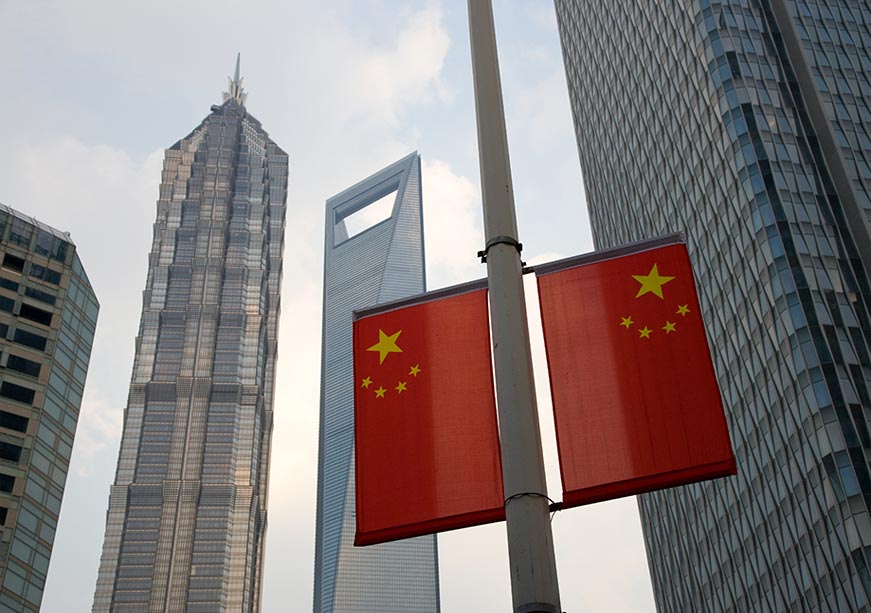
Image Source: Getty
The world is looking at a potential geopolitical and environmental point of conflict, which will affect every country in more ways than one. This dispute stems from a search for critical minerals in the deep sea. Critical minerals are considered the building blocks of contemporary technology. To say that they are crucial to the economic and national security of every country would be an understatement.
Due to the inherited complexities of mining and attaining critical minerals from challenging geographies, the hunt for them has intensified. Beyond land, many countries are now looking at space as an alternative. Finding and commercially harnessing minerals from celestial bodies like the Moon and asteroids, however, is still a challenge. Therefore, the search for critical minerals in the deep sea has now entered a new phase of competition, where countries are no longer waiting but are actively engaged in the process of deep-sea mining. In this race, while some countries such as China, India, and South Korea (see Table 1) are preparing to grab the opportunity and are trying to build capacities and capabilities, others have raised the environmental and ecological impacts of deep-sea mining. Against this background, it is crucial to identify the key players in this race and understand the accompanying international legal nuances.
Table 1: Exploration Contracts issued by the International Seabed Authority (ISA)
|
|
|
Contracts |
| S.NO |
Contractor |
Country |
PMN |
PMS |
CFC |
Total |
| 1. |
Government of India |
India |
1 |
1 |
|
2 |
| 2. |
Japan Organization for Metal and Energy Security |
Japan |
|
|
1 |
1 |
| 3. |
Government of the Republic of Korea |
South Korea |
1 |
1 |
1 |
3 |
| 4. |
Ministry of Natural Resources and Environment of the Russian Federation |
Russia |
|
1 |
1 |
2 |
| 5. |
China Minmentals Corporation |
China (5) |
1 |
|
|
1 |
| China Ocean Mineral Resources Research and Development Association |
1 |
1 |
1 |
3 |
| Beijing Pioneer Hi-Tech Development Corporation |
1 |
|
|
1 |
*PMN=polymetallic nodules, PMS=polymetallic sulphides (PMS) and CFC=cobalt-rich ferromanganese crusts
Source: ISA.
What’s the rush?
The urgency of the critical mineral problem is exacerbated by two factors: Fast-depleting reserves of critical minerals for human use and their rising demand. Behind this sudden rush are two important reasons: Firstly, the focus on clean and renewable energy, which is crucial in driving the green energy transition, and secondly, the increasing consumption of high-technology products, which depends on the heavy use of critical minerals. As an illustration, consider its application in high-tech items of various sizes, such as smartphones, electric car magnets, and intricate machinery like F35 stealth aircraft. A F35 aircraft, for example, needs 920 pounds of rare earth elements, demonstrating the significance of these minerals for any nation.
The search for critical minerals in the deep sea has now entered a new phase of competition, where countries are no longer waiting but are actively engaged in the process of deep-sea mining.
Although deep-sea mining is not an exclusively Indo-Pacific phenomenon, competition is most felt in this region due to the high stakes involved. The major actors involved in this race are China, India, South Korea, and even non-state actors, such as private companies such as the Metals Company (TMC, a Canada-based company, which have considerable stakes in the space.
International Seabed Authority: China and influence politics
Under the 1982 United Nations Convention on the Law of the Sea (UNCLOS), the International Seabed Authority (ISA) was constituted with the mandate to ‘organise and control all mineral resources-related activities’ and guarantee ‘effective protection of the marine environment’ on the seabed of international waters, which are a global commons.
ISA is constituted by the Assembly, Council, and Secretariat. ISA’s key advisory body, the Legal and Technical Commission (LTC), should help the authority frame the rules, regulations and procedures (RRPs) to govern mining activities on the international seabed. While the conversation on setting a legal framework for undersea mining has been in process since 2016, ISA has garnered increasing international attention due to the triggering of the ‘two-year rule’ by the island nation of Nauru back in 2021.
As per UNCLOS, if the Council of ISA fails to adopt the relevant RRPs within two years of receiving the application for approval of a plan of work for exploitation, the council will have to consider and approve such plan ‘based on the provisions of the Convention and any rules, regulations and procedures that the Council may have adopted provisionally, or based on the norms contained in the Convention and the terms and principles contained in this Annex as well as the principle of non-discrimination among contractors.’
Since this incident, negotiations have naturally picked up, with China playing the leading role in shaping the deep sea mining code, as it wants to influence and is eager to push forward the negotiations in its infancy phase. In the 2023 ISA Council’s July meeting, China blocked the motion introduced by France, Chile, and Costa Rica to discuss a moratorium on deep sea mining. The absence of the United States (US) from the ISA elevates Beijing's role to a prominent position. This discussion will likely have severe implications for the future of the high seas, which cover 60 percent of the world’s oceans.
Even the European Union has adopted a resolution to support a moratorium in response to Norway’s decision to initiate deep-sea mining in the Arctic.
At the ISA’s Council meeting in July 2023, China and other states like Nauru, Japan, Australia, India, Norway, and Russia supported deep-sea mining against a group of 20 countries that opposed it due to lack of scientific evidence and are pushing to put a moratorium in place. France was the exception, calling for a total ban on deep-sea mining. Apart from nation states, many international Multinational Corporations (MNCs) like Google, Samsung, BMW, Volvo Group, and Tesla have also joined the call for a moratorium on deep-sea mining. This call includes 804 marine science and policy experts from 44 countries recommending a ‘pause until sufficient and robust scientific information’ is obtained. The call for a moratorium has increased since the discovery of “dark oxygen” on the seafloor. Even the European Union has adopted a resolution to support a moratorium in response to Norway’s decision to initiate deep-sea mining in the Arctic.
Stuck in a limbo
As commercial deep-sea mining comes closer than ever to being a reality, it is critical to analyse and take stock of the complex interplay of geopolitical, environmental, and legal challenges that will define the future of international relations and environmental stewardship. As nations such as China, Norway, South Korea, and even India accelerate their efforts to exploit these untapped resources, the world faces a crucial decision: To prioritise immediate economic and technological gains or the fragile ecosystems of the deep ocean. China's geopolitical and strategic goals and its growing influence on international organisations, including the ISA, must be kept in mind while taking a call when the stakes are undeniably high, not just for the Indo-Pacific but for the entire planet.
The moratorium is also being proposed as per the established precautionary approach. This approach is a broad legal and philosophical principle that suggests a pause and reassessment in case of a human innovation/activity that could potentially result in harm given the lack of scientific knowledge. In light of the pressing concerns raised by scientists, environmentalists, and several nations, a global moratorium on deep-sea mining should be the natural course of action. While some have argued that such a precautionary pause would not be in accordance with UNCLOS, including the current Secretary General of ISA, it would be an obligation under the constitution of the oceans. In an advisory opinion, the International Tribunal on Law of Sea (ITLOS) has confirmed a trend of precautionary approach becoming a part of customary international law and stated that it is a ‘binding obligation’ on both states and the ISA. This approach is enshrined in Principle 15 of the Rio Declaration. An example of such a moratorium under international law is the International Whaling Convention, which was adopted based on the precautionary approach and has been largely followed for the past 35 years.
As the global community navigates this uncharted territory, it must ensure that the pursuit of critical minerals does not come at the expense of the environment that sustains us all. The choices made today will have far-reaching consequences, shaping the geopolitical landscape and determining whether the international community can unite in the face of shared challenges or whether the race for resources will lead to further fragmentation and conflict.
Abhishek Sharma is a Research Assistant at the Observer Research Foundation.
Udayvir Ahuja is a Programme Coordinator for the Strategic Studies Programme at the Observer Research Foundation.
The views expressed above belong to the author(s). ORF research and analyses now available on Telegram! Click here to access our curated content — blogs, longforms and interviews.




 PREV
PREV



